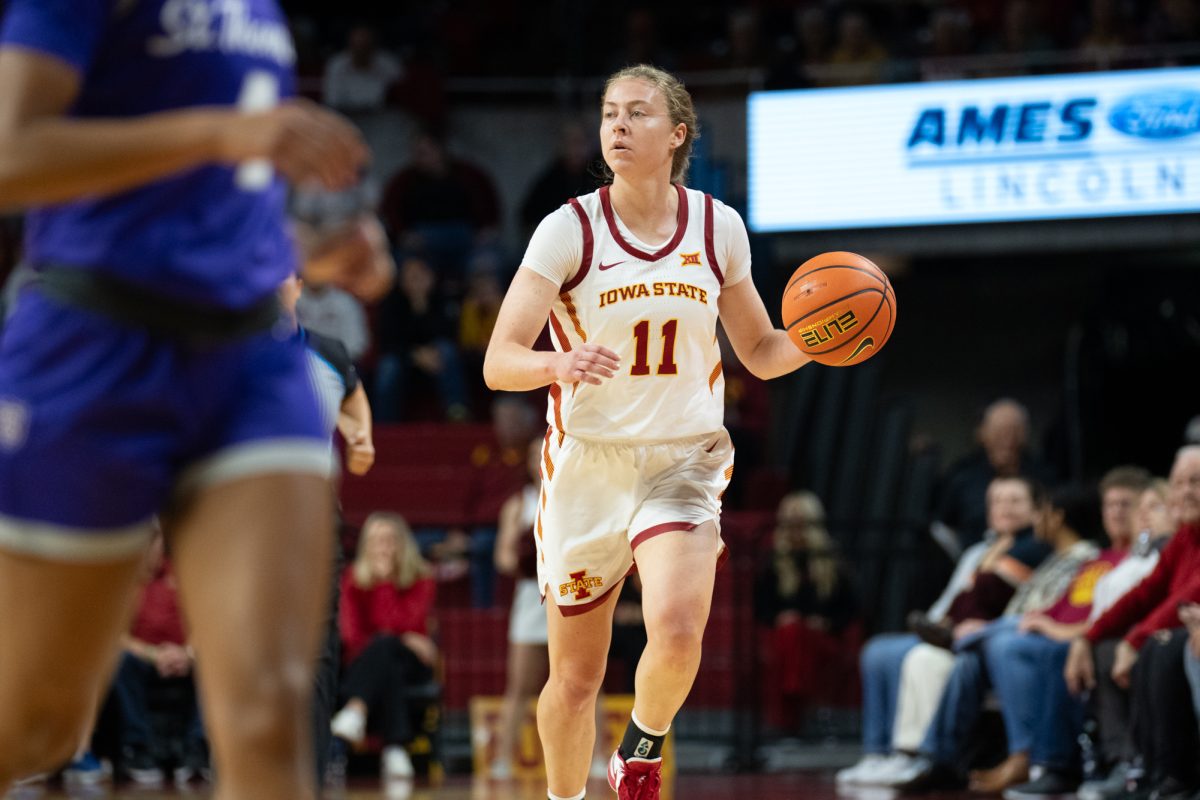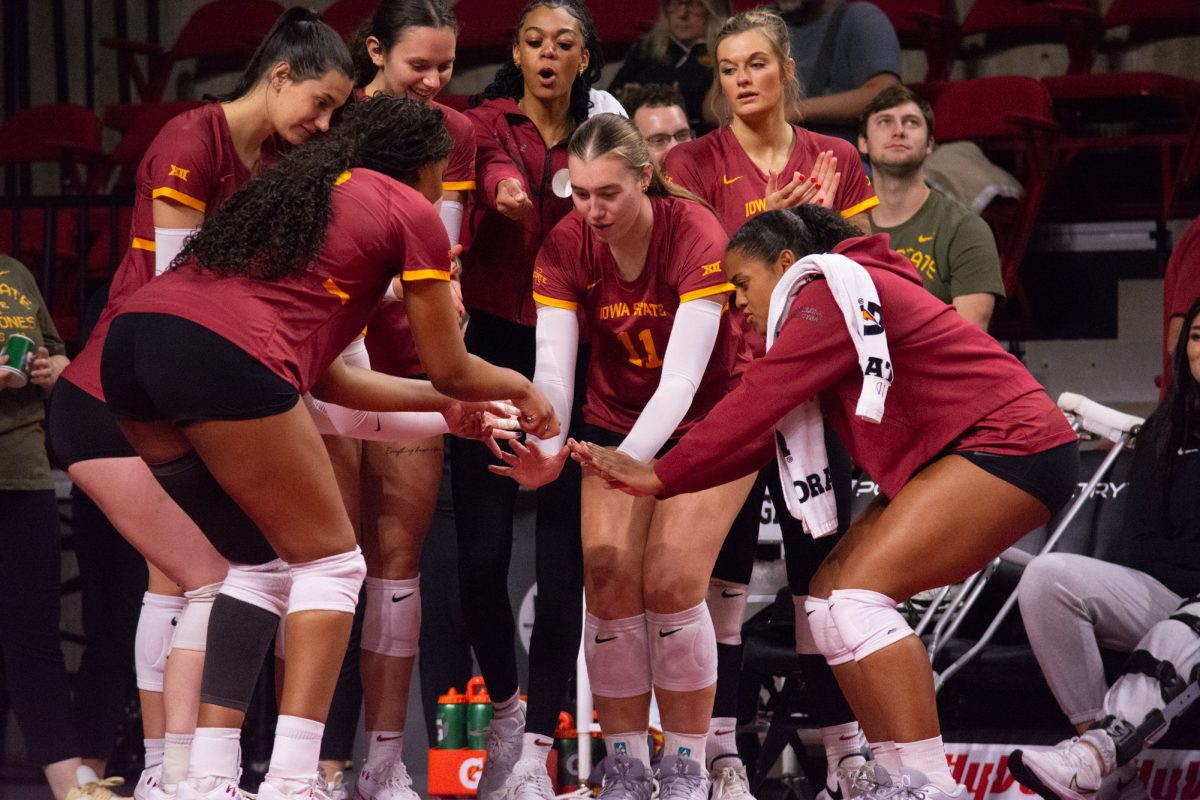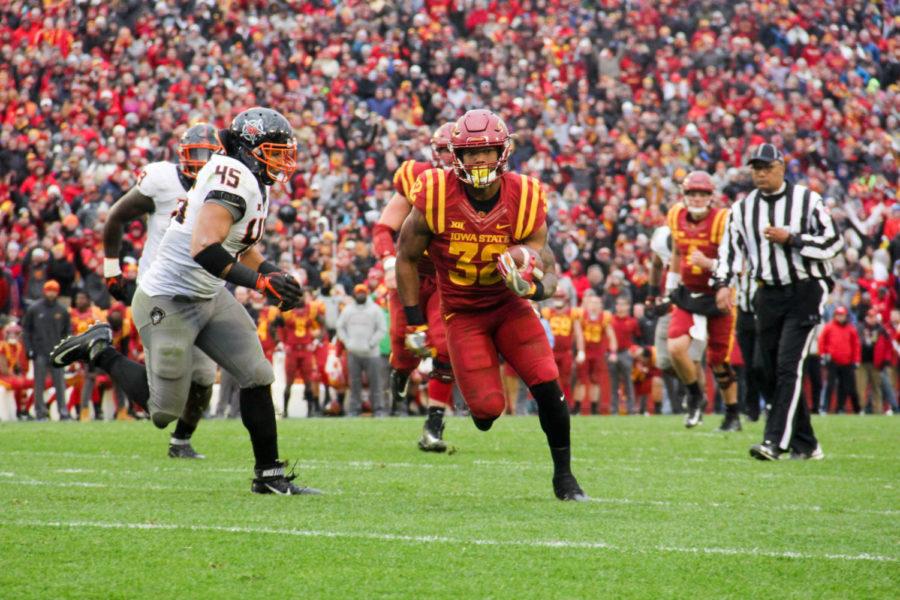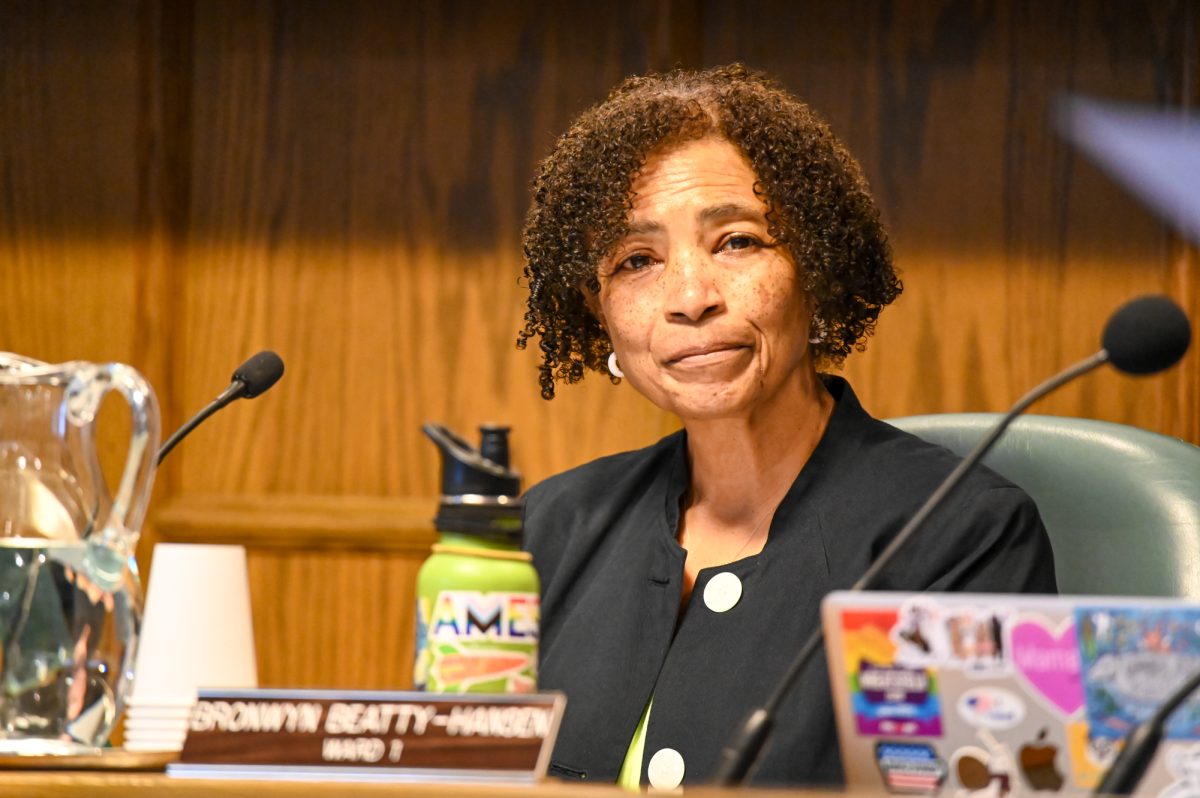COLUMN: Do we consume more than we need?
April 22, 2003
Let’s get this right out of the way at the beginning — I’m a pesca-vegetarian. The only meat I consume is fish. The whole fish thing just started a few weeks ago. It’s hard to say no to seafood when you can hear the surf.
There are a lot of reasons vegetarians to choose their lifestyle. Some are worried about animal rights and the ways that animals are treated in the meat industry. For these people, it might be just as important to give up dairy products or eggs from penned animals, as it is to give up meat. You can buy the eggs of free-range chickens.
Other vegetarians do it for health reasons, believing that cutting out meat makes it easy to cut out fat, and the fat-soluble chemicals that animals accumulate in their fat. This view is often in contrast to the popular view that vegetarians are not healthy because of dietary deficiencies they experience from their meat-free diets.
Most nutrition books acknowledge a need for vegetarians to be careful to get enough calcium, found in milk, and protein and iron, found in meats. Luckily, these dietary requirements are available in a variety of vegetables.
Let’s clear up some terminology. A vegetarian does not eat meat. This word can be modified with a number of prefixes. Ovo-vegetarians eat eggs. Lacto-vegetarians drink milk and eat dairy products. Pesca-vegetarians usually incorporate fish into an ovo-lacto-vegetarian diet. Pollo-vegetarians do the same with chicken
Partial vegetarians might choose to cut out red meat, or only eat meat so many times a week. Vegans attempt to not eat or use any animal product. I imagine this would be very tough, considering how many daily items contain animal products in the form of gelatin or inks.
The reasons for all of these lifestyle choices are numerous and I don’t claim to be presenting them all. My own reason stems from some information I picked up in some of my science courses.
On every successive level of the food chain, from producers, such as grass, to primary consumers, such as deer, and to secondary consumers, such as wolves, there is only 10 percent of the calorie availability as on the previous level. That is to say that if the grass produced 1,000 calories, there would only be 100 calories available in the deer that have eaten the grass for the wolves to eat. This occurs on every level, and most natural food webs contain more levels than such an example.
This means that cattle fed grain yield one-tenth of the calories in that grain in their beef. Enough beef to provide a set caloric intake for 10 people could have provided that same amount of calories to feed 100 people.
I know this is assuming that all of the feed given to the animals would be fit for human consumption, and that the animals did no natural grazing. Neither of these is completely true, so the one-to-10 ratio is probably not so extreme in reality. But the ratio is there — more people could live off of a vegetarian diet. As an American, affluent in any global sense, I feel that I consume enough — enough gasoline, enough electricity, enough plastics and enough disposable everythings to make me and Mother Nature sick. So, I don’t eat meat.
I would like to believe that every steak I don’t eat gives eight or nine bowls of rice to someone somewhere that needs it, but it is not that simple. I know that’s not how it works. It is odd because, after all of the logic and reasoning, it comes down to this: There are thousands of things that I feel powerless to change in the world, but this one, my diet, allows me to say, “Consume less.”
I don’t know how long my personal meat fast will hold out. I’m already weakening with my fish and seafood consumption. I will not claim to dislike the taste of a juicy steak, but the longer I go without meat, the more I feel that some of the reasons not to eat it are valid.
I don’t like the fact that chickens are packed into pens, one on top of the other, so that people can have chicken nuggets or a fried egg. Maybe that’s just the way the world is, one more thing I can’t change.
I ask you: Do you need or do you want, and can you even tell the difference anymore? How much should a fraction of the world’s population consume?






